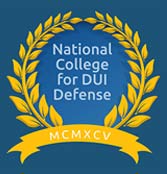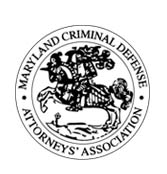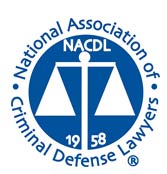When someone is charged with any type of crime in Maryland such as a DUI, DWI, a drug crime or theft, that individual should seek an attorney that is experienced in criminal defense law. Due to the severe penalties often associated with these types of crimes, it is important to hire an attorney that specializes in this area – not in civil law. Civil law is greatly different than criminal law because it involves trying to obtain monetary rewards, i.e., lawsuits. Alternatively, criminal law is the practice of defending individuals that have been charged or arrested for a crime. A Maryland criminal attorney will be experienced defending clients against charges such as:
|
|
|
|
The Maryland Criminal Procedure
Being Cited, Charged, or Arrested
When dealing with law enforcement, and individual can be cited, charged, and/or arrested. Citations are typically given for minor traffic violations, and generally do not require an individual to go to jail. Being charged means that you have been formally accused of committing a crime, and being arrested means that you have been physically taken into custody.
In some instances a person can be arrested without being charged. In such cases the police make the arrest and then submit the evidence to the prosecutors, who then decide whether to charge. If the prosecutors believe the evidence against the individual is weak, they will not formally charge the individual. Alternatively, a person can be charged without being arrested. In these types of cases, evidence gathered by detectives is submitted to the prosecutors, who then present it to a judge who may issue an arrest warrant. In Maryland, police officers can file charges independent of a judge or court commissioner, but some crimes must be committed in the presence of the officer in order for this to be legal.
Maryland Criminal Court Procedure

The criminal court stages that an individual faces depends on whether he or she is facing misdemeanor or felony charges. Essentially, misdemeanor charges are less serious, and potential penalties include fines and jail time for less than one year. Felony crimes such as drug trafficking and homicide are handled differently by the court system due to their seriousness.
If you’ve been charged with a misdemeanor in Maryland, you may or may not be detained and taken to local jail. If you are taken to jail, you will eventually be taken before a jail commissioner who will set your bond as well as the conditions of your release. If you’re fortunate, you will be released on your own recognizance, which means that you will not have to pay to get out of jail. Otherwise, the commissioner will set forth an initial bond amount. At this point there are three options: 1) post the full amount of bond; 2) hire a bail bondsman to cover your bond and pay him or her a 10% commission; or 3) wait until the next day for the bond hearing. If you hire a criminal attorney prior to the hearing, he or she can often convince the judge to lower the bond amount. Although most individuals want to leave jail as soon as possible, a great amount of money can often be saved by hiring a lawyer to have the bond lowered to a reasonably affordable amount.
The first court appearance after being charged with a misdemeanor is the “preliminary inquiry“, where the defendant is advised of his or her charges and the potential penalties, and also made aware of the option to hire a public defender if the specific charge is punishable by jail time and he or she cannot afford to hire an attorney. There are certain financial conditions that must be met in order for someone to be eligible for a public defender. Also at this time a trial date is tentatively scheduled to be held in a Maryland district court.
If you’ve been charged with a felony in Maryland, you or your attorney have the option to request a “preliminary hearing” within 10 days of your arrest. At this hearing, the prosecution must establish probable cause for each of your charges, which is a very low burden of proof. Essentially, the prosecution must establish that each of the alleged crimes may have occurred, and that the defendant may have committed them. The defense cannot offer any evidence, but can cross examine any of the prosecution’s witnesses. Unlike in a criminal trial, hearsay evidence is allowed, and is often used to establish probable cause. A preliminary hearing can be waived; however, a criminal defense attorney will usually opt to have the hearing in order to assess the initial evidence against the defendant. Also, any statements that are elicited from the prosecution’s witnesses can be used against those individuals at trial if they decide to change their story. After analyzing the evidence presented at the hearing, the judge can 1) reduce charges, 2) dismiss charges, and/or 3) “hold the charges over” for trial. In most instances, the charges are held over for trial. In some instances, a plea arrangement can be reached to avoid trial.
If the prosecution chooses, they may opt to utilize a grand jury proceeding in lieu of a preliminary hearing. The fundamentals of a grand jury are the same; however, 23 jurors decide whether charges should be held over instead of a judge. If they decide to hold the charges over, this is called an indictment.
After the preliminary hearing or grand jury proceeding, a 4-215 hearing is held in circuit court. This hearing is essentially the same as a “preliminary inquiry” which is discussed above. A few additional tasks are completed however: 1) a status conference is scheduled, 2) motions dates are scheduled if applicable, and 3) the trial date is scheduled. A status conference is an opportunity for the defense and prosecution to determine if any issues need to be resolved before proceeding further. A motions hearing is an opportunity for the defense or prosecution to have the judge make pre-trial rulings, such as whether certain evidence will be allowed at trial. It’s important to note that the 4-215 “starts the clock”, meaning that from that date, prosecutors have 6 months to being the defendant to trial, or risk having the case dismissed.
Our Maryland Criminal Law Firm
We take the United States Constitution very seriously. It gives you exceptional rights and freedoms. But we know the Constitution is only as strong as those who work to protect those rights and liberties. That’s why at the Law Offices of Gerstenfield & Demirji, PC., we vigorously represent each and every client and it shows in our excellent trial record.
Robert Demirji is an experienced, highly sought-after Maryland criminal defense attorney with an excellent reputation among prosecutors, judges, and the citizens of Maryland. He is highly respected for his trial skills and zealous advocacy on behalf of his clients. Prosecutors know he will leave no stone unturned in finding the best way to represent his client. Robert has established the same fine reputation for thoroughness and vigorous advocacy.
Our firm believes that successful criminal defense starts with exhaustive preparation. Long before the actual trial, we thoroughly investigate and systematically analyze each case. We work to find every piece of evidence in your favor, and every weakness in the prosecutor’s case. After we have fully explored all the facts, we decide on the best strategy. We bring motions to suppress and eliminate, whenever possible, the government’s efforts to exploit the use of potentially harmful and often illegally obtained evidence.
You may think the state has a strong case against you. We know from experience that even strong cases have weaknesses. These weaknesses can give you an advantage. But you need a criminal defense lawyer at your side, one whom the prosecution respects. You need a criminal defense lawyer that won’t back down.
Criminal defense is what we do, and we’re very good at it. Protect your rights now. Call (301) 200-1886 for a free initial consultation. Evening and Saturday appointments are available.






